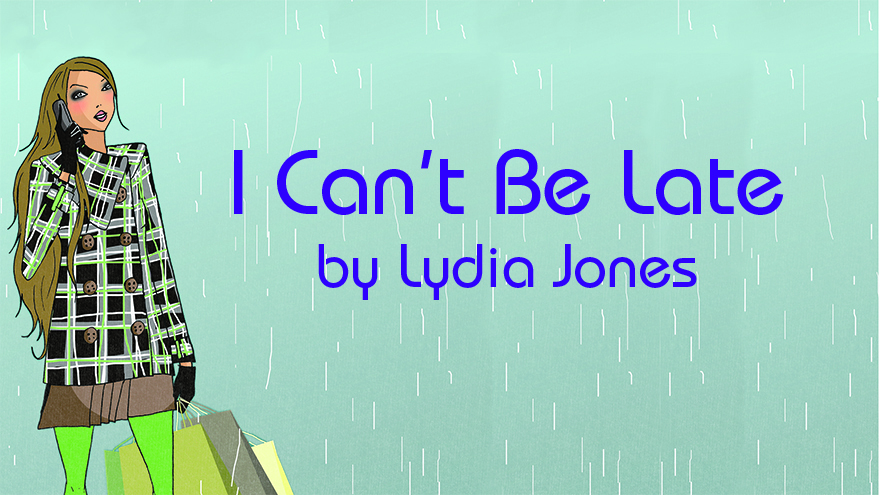I Can’t Be Late: A Tender Story From Our Archives

Grab five minutes from your busy day and settle back with this lovely short story by Lydia Jones.
We apologise for the delay. This is due to leaves on the line. Our journey will resume shortly.”
I wince. I’ll be late.
Mum doesn’t do late. I phoned before I got on the train to tell her exactly when I’d arrive, and now we’ve been delayed.
She’s always early. When Betty was driving, so were we. The winter railway system is less efficient. I’d better text.
Only once I didn’t warn Mum. I remember arriving to find her sitting on a station bench like a sad little elf, so small and vulnerable.
I was engulfed by guilt, especially when her face lit up in that way it does whenever she sees me. When someone looks at you like that, it’s impossible not to feel invincible.
Your mother is a special person
She replies as if she’s been sitting phone in hand, which she probably has.
Will go to museum and talk to nice lady. What time?
I say I’ll text again and smile to think of her wandering around the museum. She’ll probably talk the poor desk assistant half to death.
She took me there once. I wouldn’t demean my mother by thanking this attendant for being kind, but she looked like the sort of person who understood that’s what I meant when I said, “Pleased to meet you.”
“You too.” She smiled. “I like talking to your mother. She’s a special person.”
“I know,” I said. I’ve always known.
She never scolded or said I would spoil my tea
In childhood she wasn’t like other people’s mothers who said things like “we’ll see” or “I haven’t time to be playing like you.”
She played board games and never let me win, so that when I did I felt the triumph. We went on butterfly hunts: nets aloft like flags in summer sunshine. I caught one once but she wouldn’t let me keep it.
“They have to be free,” she said, stroking its crimson wings gently. “Like people.”
Now I wonder whether someone had said that to her; it makes the memory more poignant.
After trips to the park we’d go to a café; eating enormous slabs of chocolate cake. She never scolded or said I would spoil my tea.
For my eighth birthday she bought a beading kit. I remember long winter afternoons threading bright beads onto strings. We made friendship bracelets; for months we wore them constantly. My mother, my best friend.
In teenage years I found her embarrassing
I lay chrysanthemums on the train table. She loves flowers. Last time I brought her a pot plant: dark foliage and spiky red blooms. She took a picture of it on her table and emailed it to me.
Mrs Ashley says it’s like a little bonfire in a pot.
Mrs Ashley is the care warden who helps Mum to live independently. I expect Mum will photograph these chrysanthemums later. Since I taught her to email, I get messages most days.
The bronze blooms remind me of the pom-pom animals we used to make – Mum, tongue out concentrating; me impatient, snapping thread. I know she’s still got those woollen creatures on her windowsill. Faded, dusty, full of memories.
Naturally in teenage years I found her embarrassing. Once she hugged me in full view of the street. Ryan James, with whom I was besotted, saw. I remember he laughed. I wanted to die.
“A good thing too,” Betty said when I told her. “The world would be a much better place if people hugged more.”
I spot Mum on a bench, swinging her legs
It’s only as an adult that I recognise Betty’s specialness.
Most childless women finally given the chance to adopt would surely have kept the child to themselves, left it to time and the child’s curiosity to discover their birth mother. But every last Saturday of every month, Betty brought me here to meet Mum. It must have been difficult.
Now I’m a grown woman I journey alone. This is my last visit before Christmas, though I will fetch Mum to Betty’s for the festive break.
As the train arrives I spot Mum: on a bench swinging her legs. Even from here I can tell she’s singing.
“Lucy!” She runs to give me one of her rib-crushing hugs.
People stare as they always do at Down’s Syndrome adults, but most of them are smiling.
“They’ve got a huge chocolate cake inside,” Mum says.
“Come on, then.” I take her arm. “We’d best go and get some.”
Read more super stories in My Weekly every week




